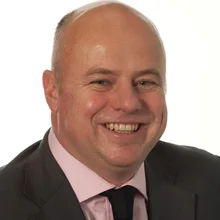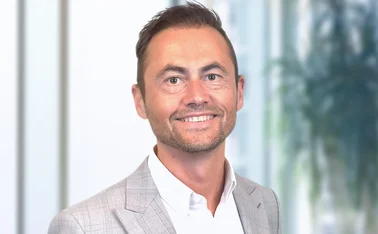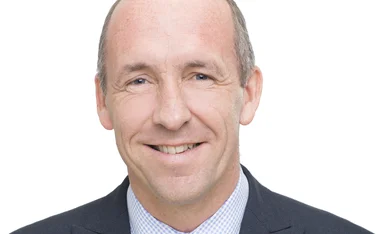
Succession planning: Taking advice

Getting the right advice is invaluable for brokers looking to sell their business, writes Sam Barrett
Whether you’re looking to sell your business, undertake a management buyout or acquire another firm, chances are it’s your first time. While it’s possible to go it alone, few do, with most brokers taking expert advice to ensure they get the best value from the deal.
Identifying who you need to speak to before you embark on your business strategy is key. “We find that brokers who seek expert advice tend to have a much more rewarding experience,” says Nick Burrows, senior distribution propositions manager at Aviva. “Getting advice enables them to explore all the options available to their business: without this preparation they can end up having to take the option of last resort.”
The importance of securing this expert advice is something that Kevin Stevens, director at broker Melville Burbage, has noted. Although he was part of an MBO in 2001, followed by an acquisition in 2004, he’s sought expert advice for acquisitions he’s planning now. “It’s such a different landscape, especially from a regulatory perspective,” he observes. “Because it has become so much more complex, having the right professional people around you is really important.”
Business assessment
An honest assessment of where the gaps are in your capabilities is a great starting point when it comes to determining which experts you need to get on board. As a result, many brokers will turn to an independent business consultant to give an overview of what’s required.
“If you’ve never bought or sold a business before you won’t necessarily understand the process,” advises Andrew Linnell, business growth and strategy development consultant at RWA Solutions.
“Whatever your plans, you’ll want to ensure your business is in a good shape and that all the necessary preparations have been completed. This can include everything from the legal work through to tax advice.”
Expert advice
Every business has different objectives and needs but these are some of the experts you might want to engage if you’re considering a change in your business strategy:
* Independent business consultant
* Compliance
* Human resources consultant
* Finance, including your bank and commercial finance brokers
* Corporate lawyers
* Accountant
* Tax adviser
* Family business specialist
* PR and communications consultant
* Business peers, insurers, professional bodies and networks
As well as highlighting what you need to do, Linnell says that speaking to an independent business consultant can also help you think through exactly what you want to achieve. “This thought process can save wasting time exploring the wrong deals,” he explains.
“We advised one broker who ended up selling his business to someone he’d never even thought of and they’re still working together successfully.”
While price will always be fundamental, often there is much more at stake with brokers looking to safeguard the legacy they’ve built up when they sell their business.
We find that brokers who seek expert advice tend to have a much more rewarding experience
Nick Burrows
Money matters
Financial expertise can though pay dividends. For instance, Stevens engaged commercial finance brokers Integritas Financial Solutions in his acquisition planning.
“They were able to look at our finances and determine exactly what we needed and how to get it on the best possible basis,” he recounts. “This expertise is very useful, saving us considerable time and money.”
While the finances behind a deal are likely to dominate discussions, it’s also important to make sure that other elements are addressed too. As an example, as part of his acquisition strategy, Edward Finch, managing director of MRIB Group, has engaged a variety of experts, including human resources (HR) professionals.
“HR can make a huge difference to the success of a deal,” he confirms.
“You need to be certain that everyone from the most junior person to the managing director is inspired and motivated.
“When you’re buying a company, you’re buying the team that looks after the clients. You need to respect them or you can quickly lose their trust.”
Professional network
Existing professional contacts such as your accountants, corporate lawyers and bank can also provide a valuable source of advice.
As an example, having successfully grown his business from four to 35 members of staff and gained chartered insurance broker status, Anthony Adler, managing director of Adler Insurance Brokers, is now keen to grow through acquisitions.
“Cashflow is one of the biggest challenges if you’re looking to acquire other businesses,” he says. “My accountants were able to advise on whether my acquisition plans were viable but also what the banks would expect from me and how my balance sheet would look.”
Speaking to peers who have already been through the same process can also prove invaluable. “We spoke to several individuals who had completed large acquisitions,” confirms Stevens. “It gave us a real insight into what we could expect and we do feel much more prepared now.”
Similarly, it can be worth turning to insurers, networks and professional bodies to see whether they can offer any advice or insight into your business plans.
It should offer you value for money, save time and enable you to secure a better deal
Anthony Adler
Practical issues
Whether you bring in an independent business consultant or chat informally to another broker, it’s prudent to ensure they’re right for your business. Shared objectives are critical but there also needs to be no conflicts of interest. Burrows recommends checking their track record and testimonials. “It should also come down to how well you get on,” he adds. “This is a people business so this fit is essential.”
Timing also matters. Adler says he started putting his business plan together around 18 months ago. “You need a structure in place so that when you start talking to other businesses everything is ready to go. Once due diligence is underway you don’t need the aggravation of having to arrange finance or find new premises.”
There are also financial implications associated with engaging experts. Although some advice will be free, for instance an informal chat with a peer, an insurer or your bank manager, you can expect to pay for any consultancy you receive.
While this expense needs to be factored into the deal, Adler insists the right sort of expert advice is well worth taking. “It should offer you value for money, save time and enable you to secure a better deal. Whatever you’re planning with your business, you can’t afford to get it wrong.”
Insurer viewpoint

Most brokers will only sell their business once, but they can be reassured that they are not the first to do it. As a consequence, there is plenty of support and advice available when the time comes for them to consider their succession options.
Developing and executing the right succession plan, can be a long process and should be considered carefully. This will start with the broker principal understanding the options available and preparing the business for sale, through to completing the transaction and embedding the business in the new environment after the sale. Obtaining independent advice and expertise throughout the process can be critical to achieving a successful outcome, ensuring that the broker principal can step away, at the right time, with confidence.
We believe that brokers should be able to turn to their insurer partners for support in considering the options available. For example, the Aviva Succession Proposition provides independent, regional brokers with access to a number of organisations and experts who specialise in mergers and acquisitions consultancy, sourcing funding solutions, obtaining valuations and, of course, compliance. Plus we are fortunate that we work with people from within the industry, who have been through the process before and who are willing to make themselves available to our brokers.
Achieving a balance between the right price and the right conditions is key. This is even more essential for regional brokers who tend to have personal connections with the local communities they operate in. Insurers should be committed to supporting regional independent brokers and we firmly believe that a key part of this support is providing access to independent advice and expertise, to ensure brokers can choose and implement a succession route that is not only financially rewarding, but protects their customers, employees and legacy for the longer term.
Phil Bayles, chief distribution officer, UKGI, Aviva
Only users who have a paid subscription or are part of a corporate subscription are able to print or copy content.
To access these options, along with all other subscription benefits, please contact info@insuranceage.co.uk.
You are currently unable to print this content. Please contact info@insuranceage.co.uk to find out more.
You are currently unable to copy this content. Please contact info@insuranceage.co.uk to find out more.
Copyright Infopro Digital Limited. All rights reserved.
You may share this content using our article tools. Printing this content is for the sole use of the Authorised User (named subscriber), as outlined in our terms and conditions - https://www.infopro-insight.com/terms-conditions/insight-subscriptions/
If you would like to purchase additional rights please email info@insuranceage.co.uk
Copyright Infopro Digital Limited. All rights reserved.
You may share this content using our article tools. Copying this content is for the sole use of the Authorised User (named subscriber), as outlined in our terms and conditions - https://www.infopro-insight.com/terms-conditions/insight-subscriptions/
If you would like to purchase additional rights please email info@insuranceage.co.uk
Most read
- In Depth: Managing cyber risk in an ever-changing security landscape
- RSA confirms trading structure ahead of NIG integration
- In Depth: Cyber risk and AI – friend or foe?







